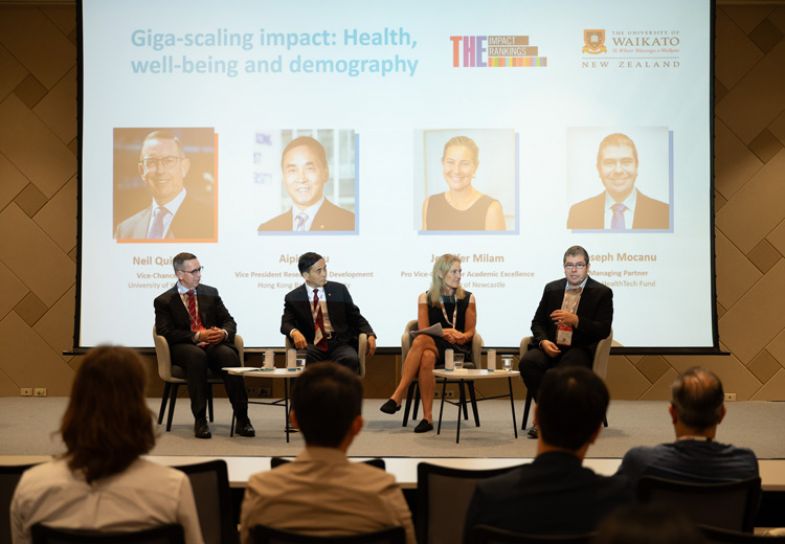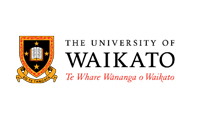Technology will be a major disruptor in how we provide sustainable healthcare but data will play a key role in ensuring its impact is positive
Healthcare is one of the areas set to be most disrupted by advances in AI. The technology is expected to improve outcomes in a range of areas, from emergency triage to diagnostic support. A panel on giga-scaling impact in areas of health, well-being and demography, held in partnership with New Zealand’s University of Waikato, at the 2024 THE Global Sustainable Development Congress in Bangkok, considered different ways this might play out.
Neil Quigley, vice-chancellor of the University of Waikato, who moderated the panel discussion, opened the session by suggesting that understanding data-rich digital technologies and how they interact with different aspects of healthcare will be crucial to ensuring that technology provides a basis for enhancing people’s well-being in the future.
Aiping Lyu, vice-president of research and development at Hong Kong Baptist University (HKBU), discussed the role of data insights in combining traditional Chinese medicine with Western practices. “We can use live science to merge experiences in traditional medicine and combine it with conventional biomedical medicine to build up a three-dimensional database,” he said. This might answer questions about whether Chinese practices could be used in conjunction with modern drugs, for example, or help assist as symptoms changed, Lyu said. New drug discovery these days tends to focus on single drugs, but this does not reflect real clinical practice, he added. “We need to think about different angles and how we collect data.”
Jennifer Milam, pro vice-chancellor for academic excellence at the University of Newcastle in Australia, explained that one of the challenges of digital advancement was that many regions did not have access to some technologies. As a university near to several remote communities, it had been pioneering research on telemedicine, she said. “We can use technology and still take a human-centred approach, particularly with Indigenous communities,” Milam said. “We had a four-year-old who was admitted to a hospital with no ear, nose and throat specialist, but we could set up simple equipment so that medics could take pictures and share them with a specialist. Rather than using virtual reality, the practitioner works with the patient, helping them to feel comfortable.”
Joseph Mocanu, managing partner of the Verge HealthTech Fund, pointed out how healthcare needs would continue to grow in years to come thanks to an ageing population facing ever more complex issues. “There are major systemic issues in medical supply at the same time as we’re getting older, facing microplastics and pollution, higher levels of stress – all of which place incredible demands on the medical system,” he said. Using data and AI could help clinicians “step outside” the healthcare system, he added, to help it become less reactive and more preventive.
Advancing technology was already helping with student engagement, Milam added. The University of Newcastle, she said, was using virtual reality to train practitioners in radiation oncology in Australia and Vietnam to deal with a stark shortage of skills in this area. Using a state-of-the-art simulation laboratory, nurses who had become disillusioned with the profession were posting higher evaluation scores and had reported increased engagement, she explained: “We can begin to bring all disciplines together, including law and social care, so students can learn about the whole patient and refer them to different clinics.”
The panel:
- Aiping Lyu, vice-president of research and development, Hong Kong Baptist University
- Jennifer Milam, pro vice-chancellor for academic excellence, University of Newcastle
- Joseph Mocanu, managing partner, Verge HealthTech Fund
- Neil Quigley, vice-chancellor, University of Waikato (moderator)
Find out more about the University of Waikato.

